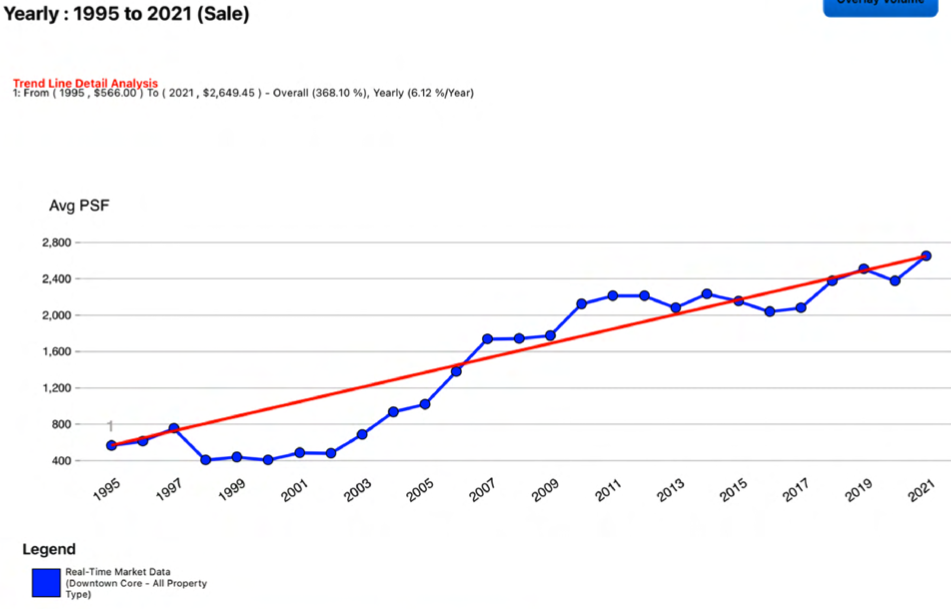5 Reasons to Buy a New Landed Property in Singapore Instead of Rebuilding
Rebuilding can be cheaper but is it really worth the time, cost, and uncertainty? Here are 5 reasons why buying brand new from a developer could be the better choice.
In theory, rebuilding an older landed home might seem like the better option especially if you know the right people who can do the job for you at better rates than a developer. But when it gets to the actual work, it’s a journey filled with unknowns.
Just imagine the nightmare that homeowners face when renovating their apartments, but now 10x it because you’re no longer just talking about fittings or floor tiles. You’re talking about structural load calculations, URA and BCA approvals, construction financing, architectural compliance, and coordinating multiple contractors who don’t always speak to each other.
The reality is that when you’re buying a landed home Brand New from a developer, you’re not just buying the home. You’re buying a peace of mind and certainty.
Here are 7 compelling reasons why choosing a brand new landed property might not only be the safer move, but also the smarter one.
1. No Waiting Time, Just Bring Your Luggage
Rebuilding takes time. It’s not like renovating a apartment, we’re not talking just a few months. We’re talking 18 to 24 months, if everything goes smoothly (and it rarely does).
That’s two years of chasing contractors, waiting on approvals, and dealing with the “got one more thing, boss” type delays.
With a brand new landed home, you skip all that. The flooring’s done. The aircons are all installed. You literally just bring your luggage.
2. Hassle-Free, No Architects, No BCA, No Headaches
If you’ve never dealt with URA or BCA paperwork before, trust me, you’re not missing out. Between submission delays, resubmissions, and the classic “wait for approval” limbo, it’s a full-time job just getting your rebuild green lit.
With a brand new home, all that’s already done. You’re not hunting for architects, coordinating with builders, or arguing with a contractor about why your wet kitchen is now dry. The plans are approved. The house is built. The keys are waiting.
3. Cost Certainty - Fixed Purchase Price
Some of you might be thinking “why should I pay the developer a markup for construction when I can do it myself?” especially if you’ve got good contacts or think you can manage the project yourself. But in reality, once the work starts, the cost control often goes out the window.
Even with a solid quote upfront, sh*t always hits the fan. The soil test that came back weird, the BCA amendment that needs re-submission, or the builder telling you costs “have adjusted” since last month.
The real wildcard, though, is what comes after the contract is signed: variation orders.
These aren’t just line item tweaks, they can derail your budget, strain your timeline, and lead to serious disputes if you're not prepared. I won’t go into the weeds here, but just know this: they’re common, they’re costly, and if you’re rebuilding, you will want to understand how they work before signing anything.
Related: What Is a Variation Order? A Homeowner’s Guide to Rebuild Cost Surprises
4. No Construction Risk — No "Hope Everything Goes to Plan" Energy
The truth is, cost issues are just one part of the rebuild risk stack.
Let’s say you manage to stay within budget but what about the build quality? What if your contractor cuts corners? What if the site supervisor goes MIA for a month and nobody tells you? These things don’t show up when you collect your keys, they show up in leaking ceilings, uneven flooring, and doors that don’t close properly six months after you move in.
When you buy brand new, you’re not just paying for the finished product, you’re paying to skip all of that uncertainty. The construction risk is already absorbed and baked into the final price by the developer.
The structure is done, the warranties are in place, and the only thing left to stress about is whether your furniture matches the built-ins.
5. Simple Loan Process
Building a new home isn’t just about bricks and cement. Financing it is a whole other headache if you opt to rebuild.
Banks treat rebuilds like Building Under Construction (BUC) developments. They don’t hand you a lump sums and they pay in stages, tied to actual build progress and verified site milestones which is similar to how loans are dispersed to property developers.
That means multiple bank visits, valuation checks that add to project friction. Plus, construction loans typically come with higher interest rates compared to standard home loans — banks see them as riskier, and they price them that way.
Meanwhile, even if the build delays, you're still on the hook for interest without the benefit of using the property.
Contrast that with buying brand new: you get one simple home loan, one approval round, and one repayment schedule. No site visits from lenders. No milestone value checks. No hidden interest charges stacked on delays. Just lock in your rate, collect the keys, and move forward, no drama.
Final Take: Rebuild or Buy New?
If you’ve got the time, capital, and appetite for chaos, rebuilding your own landed home can be rewarding. You get full control, a layout that’s 100% yours, and maybe even a healthy profit when you sell your home.
But for most buyers, buying brand new just makes more sense. You skip the drama and move into a home that’s already standing, certified, inspected, and waiting for your furniture.
When you buy new, you're not just buying square footage, you're buying certainty, sanity, and your weekends back.
But hey, if after all this, you still insist on rebuilding?
It’s totally fine. Just know you’re signing up for two years of site visits, WhatsApp group chaos, and a very intimate relationship with your contractor’s voicemail.
You were warned.







